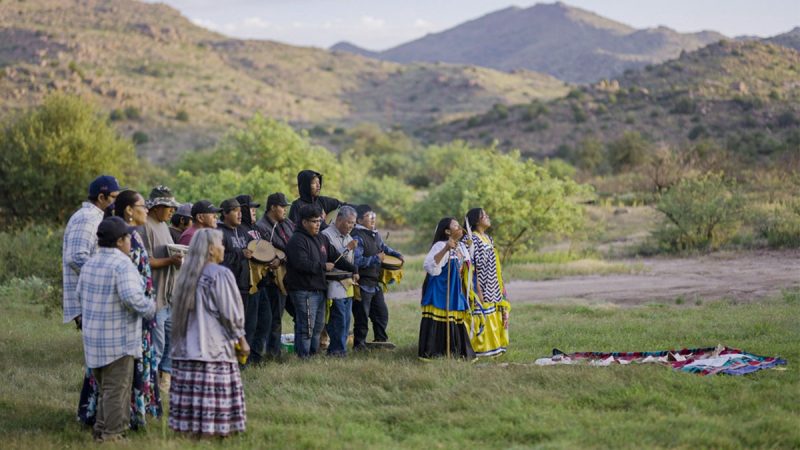Latest News
16-09-2024 12:15
6 Views
Apache Tribe Battles in Supreme Court: Sacred Land at Stake vs Federal Power

Title: The Apache Tribe's Supreme Court Challenge: A Battle to Reclaim Sacred Land
The Apache Tribe of Oklahoma is waging a relentless fight against the federal government, a legal battle that has led them to the highest jurisdiction of the nation, the Supreme Court. The unresolved issue? A parcel of land in Arizona that the tribe deems sacred, which the federal government seeks to turn into a copper mine.
The struggle stems from Oak Flat, an area within the Tonto National Forest in Arizona. This is a site of immense historical, cultural, and spiritual significance for the Apache Tribe. Notwithstanding the area's importance, a proposal by the federal government seeks to use it for a valuable copper mining project.
Many members of the Apache Tribe articulate that the planned land transfer to Resolution Copper, a foreign-owned conglomerate, is not only a desecration but also a direct violation of their tribal rights. The tribe highlights the value of the cultural and spiritual heritage rooted in Oak Flat that far outstrips the economic benefits proposed by the copper mining.
"Oak Flat is a place where our ancestors and our gods have resided since creation," said Wendsler Nosie, former chairman of the San Carlos Apache Tribe. His sentiments echo the heartfelt connection that the Apache Tribe maintains to Oak Flat and their stringent opposition against turning it into a copper extraction site.
The situation gained national spotlight when the Apache Tribe decided to take the fight to the Supreme Court, seeking to halt this governmental project. The case asserts that the land transfer enacted by the 2015 National Defense Authorization Act oversteps the constitutional bounds of the federal government regarding tribal land.
The Apache Tribe's resolute stand carries immense implications in the national narrative concerning Native American rights and their struggle for legal sovereignty. It adds weight to the continuous effort by indigenous tribes to protect their lands from exploitation, asserting their inherent rights, and denouncing the acts that they believe constitute a violation of these rights.
Despite their reservations, the loophole exists courtesy of the 1955 law that allows the government to allot rights to mine valuable minerals from public lands. This law, according to critics, provides corporations with the capabilities to exploit lands deemed essential not only for their environmental value but also for the cultural importance they bear in the lives of native tribes.
It is essential to note, however, that the government's move is not without its advocates. Many proponents argue the economic potential of the project. They highlight that the mine is expected to cater to around 25% of national demand for copper over the next forty years. This, they state, would bring jobs, economic stability, and the opportunity for growth in the community.
In conclusion, the Apache Tribe's fight at the Supreme Court represents a poignant juncture where the demands of an evolving economy are pitted against the solemn duty to protect cultural heritage. With no easy solutions in sight, the battle serves as a reminder of the complex relationship between the government, Native American tribes, and the land so deeply woven into their identities.

